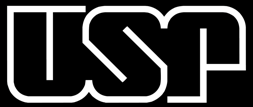É parametrização, baby!
Resumo
Termo usado em diversas áreas do conhecimento, um parâmetro é uma característica, um atributo ou um fator mensurável que auxilia a definição de algo. Os algoritmos de programas computacionais sempre se utilizaram de parâmetros numéricos mas, mais recentemente, os chamados programas paramétricos, empregados em processos criativos de diversas áreas, potencializaram esse uso. Eles permitem a livre associação de uma grande gama de informações a elementos constitutivos da obra a ser criada, seja ela um filme, uma roupa, uma edificação, uma música ou um fragmento urbano, facilitando alterações, a produção e a realização, com grande controle por parte dos autores.
Para além das compreensões atualmente difundidas sobre design paramétrico e fabricação digital em arquitetura e design, algumas questões têm nos interessado, particularmente. Como esses processos de criação e produção, utilizando lógicas paramétricas, alteram - ou não alteram - o fazer arquitetônico e artístico de obras que envolvem o imprevisível e buscam contemplar subjetividades? Como têm sido usados os programas computacionais paramétricos nas diferentes áreas de conhecimento? Com quais objetivos? Que produtos - desde a escala do corpo até a escala urbana - estão sendo concebidos com essa nova lógica? Como se coloca a questão da autoria, já que os scripts são, em grande parte, produzidos por terceiros? Quais níveis de diálogo e envolvimento têm sido oferecidos aos indivíduos, grupos e comunidades convidados a interagir com tais meios? Que impactos, inclusive conceituais, podem vir a ter esses desenvolvimentos na concepção de políticas públicas visando à cidade e à vida nela?
É querendo ampliar o debate em torno dessas indagações que a V!RUS 11 propõe uma reflexão sobre a formulação e a aplicação da noção de parametrização em processos emergentes de concepção, produção e uso de ambientes, objetos, espaços e obras artísticas. Busca-se, portanto, estimular leituras e discussões a partir de pesquisas acadêmicas teóricas, assim como de estudos e relatos de experimentações, que transitem entre e dialoguem com diferentes campos do conhecimento, entre eles a arquitetura, o urbanismo, as artes visuais e cênicas, a dança, o cinema, a música e os estudos de som, a moda, a filosofia, a ciência da computação e a matemática, o design, a geografia e o planejamento urbano, a biologia, a medicina, a economia, as engenharias, entre outros. Interessam-nos especialmente, mas não exclusivamente, trabalhos que privilegiem abordagens sistêmicas, cibernéticas e transdisciplinares.
Dessa maneira, são reconhecíveis, como campos de interesse dessa chamada, aqueles relacionados: 1. aos métodos de intervenção em espaços da cidade cuja utilização de informações sobre usos, serviços, produtos, etc., permitam que usuários finais opinem ou, mesmo, organizem-se para provocar alterações nos lugares e sistemas urbanos; 2. aos modos de criação de peças musicais, audiovisuais, objetos, interfaces gráficas e tangíveis, e obras artísticas de diversas naturezas que se sirvam da manipulação numérica de algoritmos em sua concepção, produção ou aplicação; 3. ao urbanismo paramétrico, incluindo suas técnicas de modelagem urbana e territorial enquanto suporte ao planejamento urbano e a análises espaciais e sociais; 4. ao uso de programas e tecnologias paramétricos para projeto e fabricação digital e seus possíveis desdobramentos; 5. à emergência de novos arranjos produtivos e técnicas construtivas que permitam maior rigor, precisão e controle; e 6. a reflexões críticas sobre esses e outros desdobramentos relacionados ao assunto.
Além de textos e imagens fixas são bem-vindos vídeos, filmes curtos e animações, peças musicais e depoimentos em arquivos de áudio, projetos de instalações artísticas, obras arquitetônicas, de urbanismo e design acompanhados de reflexão crítica sobre sua concepção, considerando o interesse do Nomads.usp em explorar as possibilidades de uso de meios digitais para divulgação científica.
As contribuições serão recebidas através do site da revista até o dia 15 de maio de 2015, segundo as diretrizes para autores, disponíveis emwww.nomads.usp.br/virus/submissao_submission.php
Datas importantes
_março de 2015: primeira chamada de artigos
_15 de maio de 2015: data limite para recebimento de artigos
_15 a 30 de junho de 2015: envio de comunicação de aceite e solicitações de adequação aos autores
_01 de agosto de 2015: prazo para recebimento das correções dos autores, e da tradução em inglês de textos e legendas de imagens.
_10 a 25 de setembro: envio dos textos em português e inglês revisados aos autores para aprovação
_01 de outubro: data limite para recebimento dos textos finais revisados e aprovados pelos autores
_novembro de 2015: lançamento da V!RUS 11.




